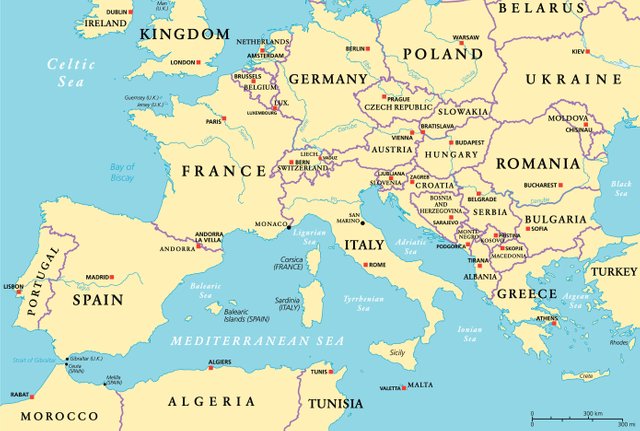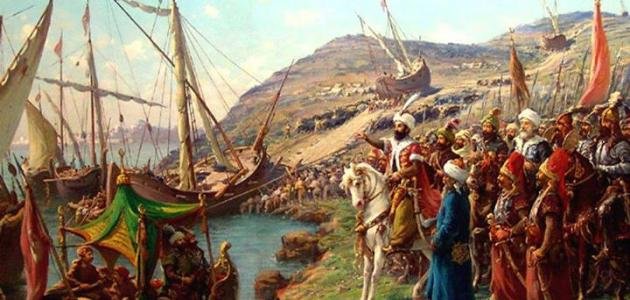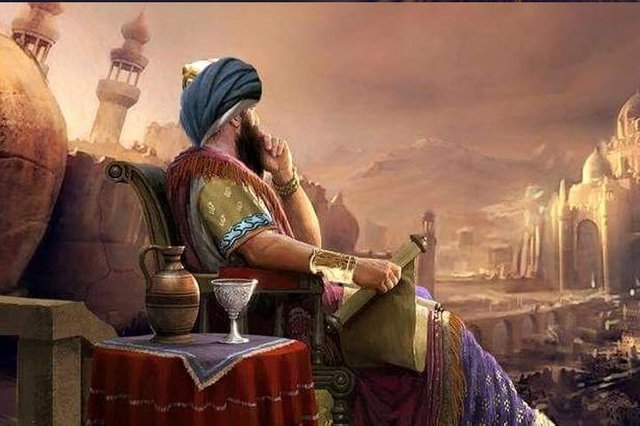Who was the first to board the Roman sea?
sea of rum

The Roman Sea is a gulf of the surrounding sea located between Andalusia and Basra in the country of Tangier, and between Tangier and the island of Gibraltar in the land of Andalusia, and its width is twelve miles, then it begins to widen to reach the coasts of Morocco, and from there to the land of Egypt, then extends over the lands Egypt until it reaches the Levant, then turns to reach the country of Rome to reach Antioch and its surroundings, and extends on the coasts of Athena and from there to the coasts of Rome to approach the Franks and from there until it becomes adjacent to Sicily, and from there to Tartosha from the country of Andalusia, then spreads in the country of Andalusia to be aligned Basra and extends from it to the end of the Islamic countries from the side of the Romans, which is Shantrin,[1] so it is the Roman Sea, the Levant, Egypt, the Maghreb, Andalusia, Franks, and Sicily,[2] even if a person walked from Basra on the coasts that he extends until he returns to The part that borders it from the land of Andalusia, it will not need to cross a river or a gulf.[1] The Roman Sea is the Mediterranean Sea, and it has been called throughout history by several names. It is the Mediterranean because it is located between three continents Thus, it is located in the middle of the world, and in Hebrew, it is called the Middle Sea, and in Latin, it is called Mediterranios, which means the center of the globe, and the Turks call it Akdens, meaning the White Sea because of its abundance of foam, and the ancient Arabs called it the Levantine Sea or the Roman Sea.[3] The Roman Sea had an influence. It has a great history in the peoples it overlooks, as it was the reason for the establishment of colonies and many wars and battles occurred on its borders, and it also facilitated the movement of trade between peoples, and they benefited from it in fishing. As for the two most important civilizations in it, they are the Greek civilization and the Phoenician civilization, and when the Islamic caliphate expanded Almost three-quarters of it was taken over.
Muawiyah bin Abi Sufyan was the first to board the Roman Sea

Muawiyah bin Abi Sufyan was the first Muslim who rode the Roman sea with the aim of conquest. Cyprus in the year 28 AH, and reopened it again in the year 33 AH, as he was able to defeat the Romans in the Battle of the Masts, and he invaded Sicily in the year 48 AH. During the era of Caliph Omar Ibn Al-Khattab, Muawiyah noticed in his wars with the Romans that their naval power was the main factor in their great strength. The Romans, so Caliph Omar Ibn Al-Khattab asked permission for that, but he refused, and when Uthman Ibn Affan assumed the caliphate, Muawiyah returned his request, so he authorized him and provided him with naval power, and ships were built on the coasts of the Levant to protect it from the invasion of the Romans.
Muawiya ibn Abi Sufyan

Muawiyah bin Abi Sufyan is Sakhr bin Harb bin Umayyah bin Abd Shams bin Abd Manaf al-Qurashi, the Umayyad, and his mother is Hind bint Utbah bin Rabia bin Abd Shams bin Abd Manaf. He was born in Mecca and entered Islam in the year 8 AH, and it is said that he converted to Islam before his father in the year 6 AH. But he was not able to join the Messenger, peace and blessings be upon him, for fear of him, which made him hide his Islam until the year of the conquest, and Muawiyah became after his conversion to Islam from the book of the Messenger, peace and blessings be upon him, and began to serve Islam with his family members, and he is the one who established the Umayyad state in the country Al-Sham, and he was one of the most intelligent and wise Arabs, as he was eloquent, meek and distinguished by dignity. The companion of Muawiyah bin Abi Sufyan, the Messenger, peace and blessings be upon him, witnessed with him Hunayn and Taif and struggled with him, as the Messenger gave him from the spoils of the Hunayn battle a hundred camels and forty ounces. [2] He became the governor of prayer and deputizing the caliph in it, as this indicated the great position of the governor in the state, in addition to the fact that during the era of Othman, he became the governor of war and tax, and he was the one who appointed the governors over the soldiers, and he had absolute authority in his mandate and disposal of it. When the strife occurred and Othman bin Affan was killed, Ali bin Abi Talib was pledged allegiance to the caliphate, but Muawiyah demanded the caliphate and considered the case of Ali bin Abi Talib’s negligence in the retribution of the killer as an argument to break his allegiance, and he corresponded with Muawiyah and Ali bin any Talib in matters of the caliphate, and Muawiyah’s position increased in special strength After the Battle of Siffin and the exit of the Kharijites, the people of Syria pledged allegiance to him over the caliphate, and the people of Iraq disagreed over the caliphate of Ali. As for Egypt, it became Muawiyah's target because he knew that if he could control Egypt, he would defeat Ali ibn Abi Talib, may God be pleased with him, and in the year 38 AH Muawiyah was able to He controls Egypt, followed by controlling Yemen and the Hejaz. In the year 40 AH, Muawiyah and Ali, may God be pleased with them both, agreed that Iraq would belong to Ali and the Levant to Muawiyah, meaning that the Muslims would have two caliphs at the same time, but that did not last long because of the killing of Ali bin Abi Talib, and Hassan, may God be pleased with him, was not able after him to fight the Umayyads because of The strength of the people of Iraq weakened, so he gave up the caliphate to Muawiyah in 41 AH, and his caliphate was the beginning of a new Islamic era full of prosperity and war victories. Welcome to the state after Omar Ibn Al-Khattab and Othman Ibn Affan, so Muawiyah remained the emir of the Levant and the Caliph of the Muslims for twenty years, and he also ruled the Arabs and the non-Arabs, and his kingdom included the countries of the Two Holy Mosques, Egypt, the Levant, Iraq, Yemen, Morocco, and many others, [6] It was his last sermon that he recommended to Muslims to fear God Almighty, and he died after that, and his death was in Damascus in the month of Rajab in the year 60 AH.
I like to read history but the text is hard to read without white lines.
What do you mean by white lines?